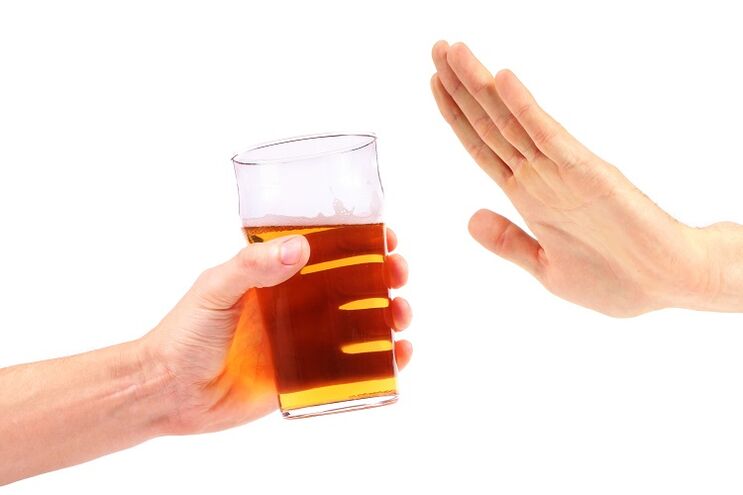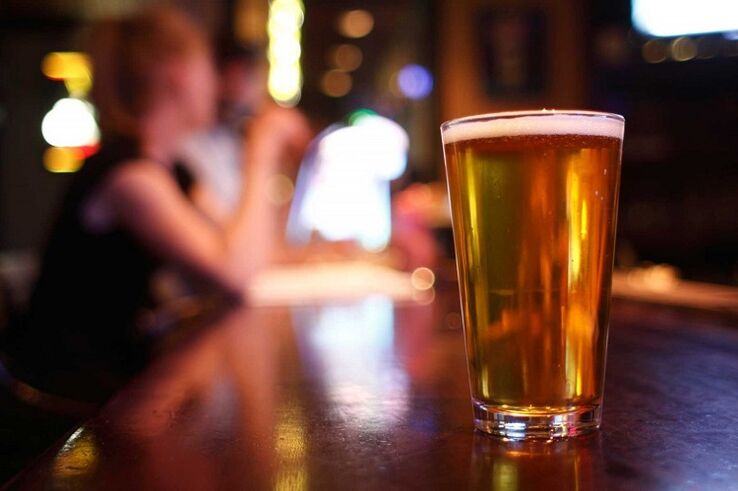At the end of a hard working day, you want to relax with a glass of wine or a can of beer. It seems, what happens if you drink every day "for happiness"?
The so-called "drinking in the evening" did not arouse public opposition from the society. At first glance, nothing bad happened: a glass of vodka did not have immediate withdrawal syndrome. But frequent use of alcohol has an impact on the human body, regardless of the "elite" of the drink. Successful young people aged 25-40 buy expensive cognac without even noticing the last link in the alcohol chain that stands in the same queue with them-a man in crumpled clothes, unshaven, and haggard. If you hint that this is your possible future, they will definitely be offended. However, if a person drinks every day, then soon they will not only pay the price of money, but also the price of health, family relations and social status.
The insidiousness of ethanol
Based on pure alcohol, alcohol consumption should not exceed 5 ml/day (women) and 10 ml/day (men). It is best to divide it into several techniques. That is, 25ml of spirits, 100ml of wine, 250ml of 3-4% beer on the holiday table will not cause destructive damage to women's bodies (double for men). However, even the frequency of use of such "harmless" doses makes them dangerous.
The destruction of the body gradually began. It directly depends on age, health status, weight, genetic predisposition. Due to the unfavorable coincidence of these factors, the first stage of alcoholism may occur within six months or a year. A person who abuses alcohol will spend the rest of his life in alcohol.

Psychological changes
Since the purpose of daily use of alcohol is to quickly achieve mental effects ("relaxation"), psychological dependence first appears. A week later, a person gets used to this relief of stress and does not rest for the sake of being sober. A year later, he forgets that it may be different.
The main symptoms of the body:
- Insomnia. Although ethanol has a strong hypnotic effect, all stages of healthy sleep are disrupted under its influence. Sleep can either become as deep as anesthesia, or vice versa-short and restless. Subsequently, one must drink alcohol to fall asleep.
- Nervous and irritable. The persistent presence of alcohol in the blood can cause hypoxia in the brain. Coupled with sleep disturbances, this can lead to fatigue, which can lead to early drinking. This is how the "vicious circle" is formed.
- Lower the critical threshold. One person starts to react violently to comments ("Yes, I drink a lot, but what's so scary? "), constantly looking for new reasons to drink.
- Find the reason. Gradually, festive feasts and small doses were replaced by abundant drinks on TV every night. The patient is ready to blame the whole world so that there is a formal reason to take another dose.
- The aggressiveness is getting stronger and stronger. Most domestic crimes occur in the first and second stages of alcoholism. The courage of imagination makes you look for adventure, and cases often end in fights.
Physiological changes
The consequence of long-term drinking is irreversible diseases in the body.
- Changes in blood composition. After a few hours, glucose levels decrease, thrombosis increases, and blood circulation deteriorates.
- Vitamin deficiency. In the context of widespread poisoning, vitamin deficiency seems to be a minor problem. However, it will gradually lead to hair loss, tooth tissue destruction, indigestion and weakened immunity. It may be the development of anemia, early dementia, and acute clinical depression.
- Aging effect. The typical signs of alcoholics are facial swelling, vascular "stars" on the cheeks, and pale or cyanotic skin. This person looks 10-15 years older than the passport age. The appearance of women changes very quickly.
- Destroy nerve cells and internal organs. Absorbed through the esophagus, ethanol with bloodIt spreads to every cell in the body and gradually affects the liver, kidney, stomach, and brain.
Big belly and thin legs-all the "joys" of beer and alcohol
Beer is one of the most insidious drinks. The store offers a wide variety of varieties, and the advertisement urges "coolness". The low mental alertness initially triggered by strong alcohol has led to an increase in domestic beer alcoholism.
Unlike vodka, beer has a lower calorie content, is easier to tolerate, and has mild hangover syndrome. However, if you drink it every day, the effect is the same.
The elements contained in beer affect the production of hormones. Men who are addicted to beer have enlarged breasts, fat accumulation on the abdomen and sides, higher voices, and impotence. If a woman drinks a lot of beer, she will acquire masculine characteristics: her voice becomes thicker, her tentacles begin to grow above her upper lip, and her body becomes thick and masculine.
Drinking beer will gradually destroy the hormonal system. Infertility, thyroid tumors, sick pancreas-these are just a few of the problems with the abuse of foamy drinks.
But beer is the most harmful to the heart. For people who regularly drink up to 3-5 liters of beer a day, the volume of myocardium will increase several times. The so-called "bull heart" effect occurs, which doctors call cardiac hypertrophy. Muscle tissue gradually degenerates, shortness of breath and heart rhythm disturbance appear. In the future, "Bull Heart" will face the threat of serious complications.

It is important to remember that small doses of ethanol in beer can lead to the formation of alcohol dependence. It's just much harder to track it down.
Is there the truth in the wine?
When it comes to the relative usefulness of wine, the doctors are talking about the product of grape fermentation, and the concentration is not higher than 13%. Drinking a glass of dry wine every week will not cause any actual harm.
However, excessive enthusiasm for them can have the same tragic consequences as when drinking alcohol. Wine destroys the limbic system responsible for memory and emotions. The abuse of wine can lead to memory loss, dementia, premature dementia and impaired consciousness.
Red wine is contraindicated in migraine, high blood pressure, diabetes, and gastritis. White wine has a negative effect on the pancreas and nerve cells in the brain.
Sweet wine is high in calories, and the combination of sugar and preservatives exacerbates the negative properties of ethanol.
Champagne, due to carbon dioxide saturation, accelerates the absorption of alcohol into the blood. How much wine can one drink at a festive table without drinking champagne? Literally means a cup. In addition, individual reactions may be unpredictable.
Alcohol and chemistry
Can I drink low-alcoholic beverages while taking the medicine? The medical answer will be absolute: no!
Even "harmless" antipyretics, such as aspirin and paracetamol, when in contact with ethanol can cause sudden stomach bleeding or anaphylactic shock.
During treatment, even a small amount of alcohol in the evening is worthwhile. Ethanol can increase the resistance of pathogenic bacteria to antibiotics and increase the side effects of many drugs. In addition, the disease itself is also a contraindication.
You should not experiment to find out what happens if you drink alcohol while taking medicine. The possibility of complications is high, even fatal.
Environmental Memorandum
If the following situations occur, it is worth worrying about:
- Your loved ones drink more alcohol every day (including low-alcohol beverages);
- Become irritable and nervous;
- He has symptoms of poisoning (hangover syndrome);
- Complaining about depression, insomnia, nightmares;
- Without alcohol, the holiday at home would never pass.
When the first symptoms appear, it is important to communicate the need for treatment to the patient. However, when an alcoholic is affected by drunkenness or a hangover, you cannot talk to him. Choose a convenient time, don't force it, speak calmly and softly. Seek professional help if necessary.
Remember: if one party drinks alcohol, the other party is in danger of becoming addicted.
























